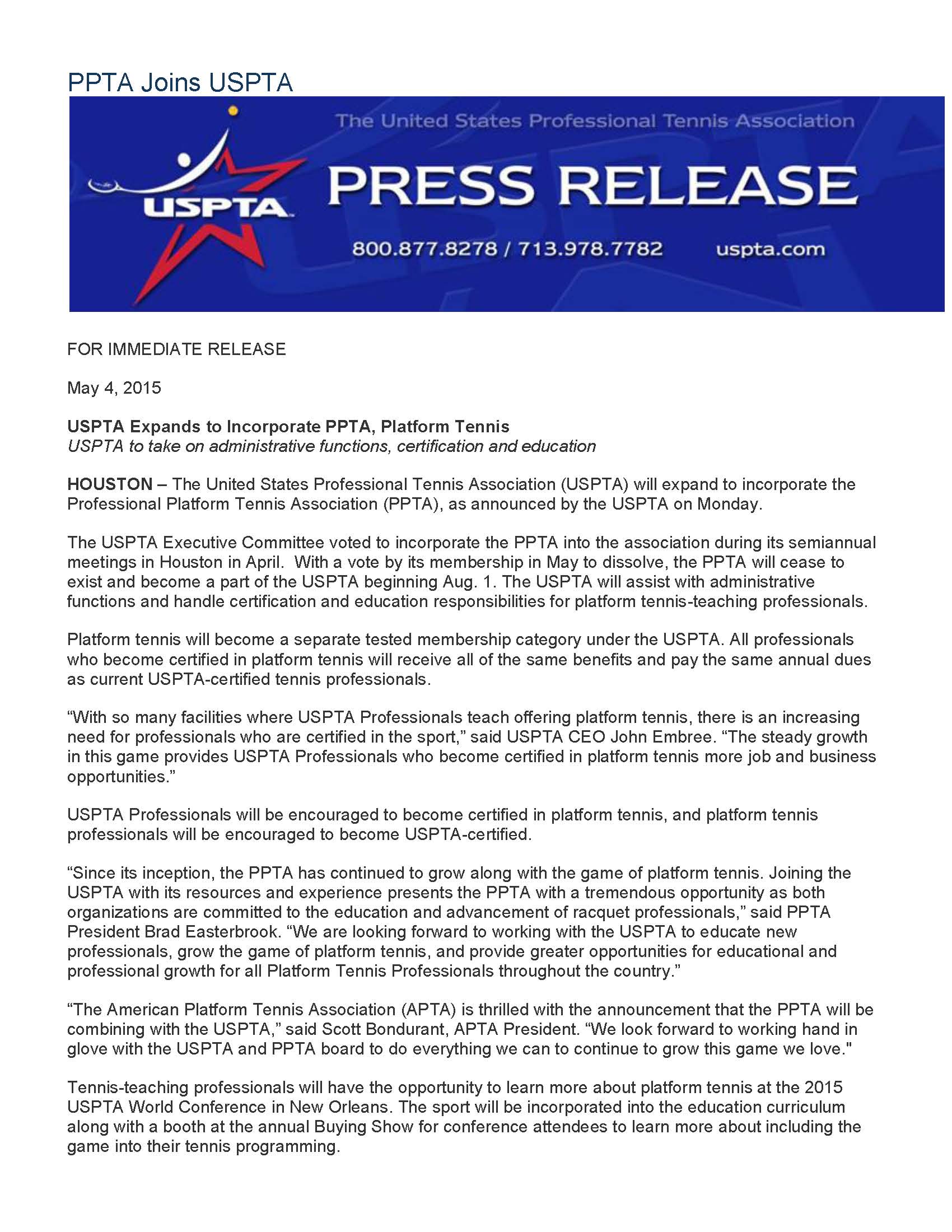This past year marked the end of an era at the USPTA (United States Professional Tennis Association) when Tim Heckler stepped down as CEO. Heckler’s departure will be a major loss to tennis because of his vision, respect within the industry, ability to work with all organizations, and commitment to represent the viewpoints of all members, even those he disagreed with. Under Heckler’s leadership, the organization truly set the standards by which the sport was taught.
It is fully recognized that John Embree, the new USPTA CEO, is a capable man and a proven leader, but it remains to be seen whether he can garner the support of all 17 divisions. For the past two years, some of the association’s elected leaders have been so focused on creating change they have failed to develop and communicate a vision for the future. It is the membership, i.e. Executive Committee, not the CEO who provides the direction for the association. It will be Embree’s job to work with the divisions to fulfill the wishes of the membership. Good luck!
There are a number of challenges to be faced in the months ahead. Some of the questions that must be answered are listed below.
- The USPTA has been a leader in the industry. Over the past two years its credibility has been diminished by the hatred, lack of ethics, greed, and pettiness demonstrated by key leaders. How much will this hurt the association and industry?
- How many USPTA members have been lost because of its family feud? Will new members be incented to join the USPTA because of the hope and change provided the new leadership?
- Does the new leadership have a vision for the future, now that they have accomplished their goal of ousting Tim Heckler? If so, when will it be communicated to the members?
- Will the new leadership be transparent in its operation of the association?
- What new, fresh, cutting-edge ideas will the new leadership put on the table to raise the standards for teaching the sport? How will they increase the number of players playing the game?
- How many USPTA members have been lost because of the weak economy that plagued the U.S. for a majority of the past decade? What will be done to get them back in the fold?
- Historically, sponsors have played a major role in supporting the organization. How many USPTA sponsors will be lost because of a diminished base of members and the change in leadership? Will additional sponsorships be attracted because of the change in leadership?
- This past fall there were rumors that the USPTR and USPTA would be merged. The groups have co-existed for 35 years in a manner that has made the teaching profession stronger. Why has this issue again become a priority? How will such a merger, if it occurs, further the teaching profession and help promote the sport of tennis?
- It makes sense for USPTA members to also be members of the USTA, but they should not be required to do so. Will the new regime require USPTA members to join the USTA?
- How will the new leadership increase the number of women professionals?
- How will the new leadership increase the number of minority professionals?
- There have been rumors that the recent tumult was driven by the USTA to divide and conquer the USPTA. Will the USPTA be folded into the USTA within the next five years?
- Will continuing education be mandated?
- Will John Embree last longer than four years in his new position?
- Will the USPTA be in existence ten years from now?
Moving forward there are three priorities for the USPTA and the industry.
Tennis is a great sport. As difficult decisions are addressed within the USPTA and between it and other groups, it must be remembered that Tennis has to remain the top priority.
Second, it is essential that the companies and alphabet soup of organizations in the industry remember that The players are the most important part of the game. They buy the goods and services provided by industry. For the most part, the players don’t care about the politics of the sport and industry. They just want to play tennis.
Third, The tennis professional introduces players to the sport, teaches them how to play and improve their game, sells them equipment, provides them with opportunities to play, encourages them to watch their favorite pros on television, and creates an experience they allows players to enjoy the sport for a lifetime. There is no need to have the USTA, USPTA, USPTR, WIlson, Penn, Head, and others without the tennis professionals who bring the players to the sport. The professionals have an obligation to maintain high standards by which the sport is taught and abide by those standards. The rest of the industry has the responsibility to respect and support the professionals.
Game on!
